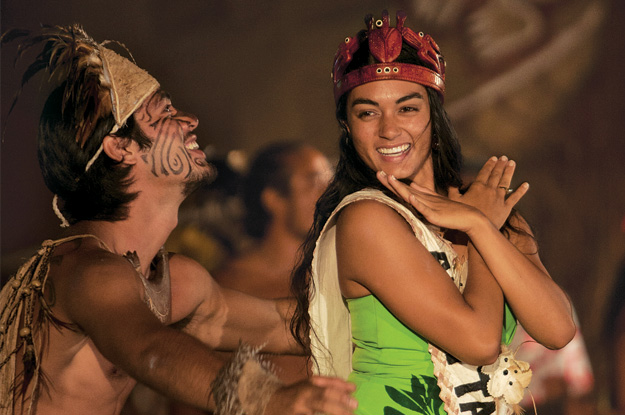Most visitors to Easter Island are lured by the Moai — the mysterious stone heads scattered around this remote speck in the southeastern Pacific. But for two weeks every February, the monoliths take second billing to a festival honoring the culture of those who erected them. Easter Islanders, many of whom can trace their ancestry to the island’s first Polynesian inhabitants, the Rapa Nui, celebrate their ancestors during Tapati Rapa Nui, or Rapa Nui week, which began as a way to help young people connect with and maintain their heritage.
During the festival, the island divides into two battling clans, with each choosing a “queen” to ceremonially lead it through a series of artistic and athletic competitions. There are performances of traditional dance and music, but the festival highlight is Haka Pei, a contest where men race down the steep slope of the Maunga Pui volcano by sliding on banana tree trunks, and try to earn points by not falling off.
Easter Island is often studied as an example of how civilizations collapse — disease and resource depletion nearly decimated its population by the 19th century. Today’s inhabitants number over 5,000. For them, Tapati Rapa Nui’s performances and games are testaments to the island’s enduring spirit.
This year’s festivities kick off Friday, January 29, and conclude on Saturday, February 13, when judges will announce the winning clan and crown its leader queen of the island for the year. While getting to Easter Island, a territory of Chile, may be difficult, a visit during Tapati Rapa Nui offers a one-of-a-kind opportunity to see the living legacy of one of the world’s most intriguing indigenous cultures.






